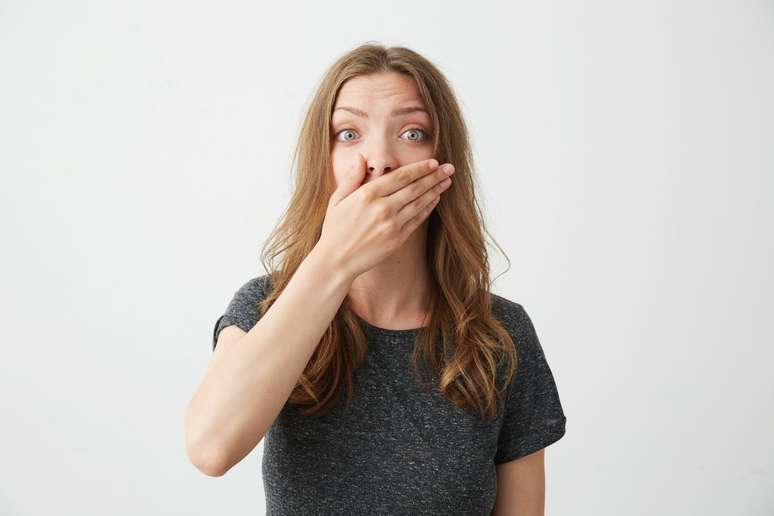Experts reveal tricks to relieve hiccups and explain when this symptom can be considered worrying
OR hiccup is an involuntary, repetitive contraction of the diaphragm and intercostal muscles, followed by a rapid closure of the glottis and vocal cords, which temporarily interferes with normal airflow and generates the “hic” sound.
“The diaphragm is located between the chest and the abdomen and is responsible for our respiratory movements (inhalation and exhalation),” explains the Tatiana Magalhães de Almeida Grittiteacher of the speech therapy course at the Universidade Cidade de S. Paulo (UNICID).
According to Dr. Michelle Andreatapulmonologist from Saúde no Lar, in prolonged cases, hiccups can cause tiredness, chest discomfort and abdominal pain.
Read on to understand what causes hiccups and how to stop this symptom!
What causes hiccups?
To the causes of hiccups They can be different and range from simpler conditions to more serious diseases. The pulmonologist lists the main ones:
- Gastric stimuli, such as rapid ingestion of food and drink
- Distension of the stomach, which occurs, for example, after large meals
- Consumption of carbonated or alcoholic drinks
- Stress and anxiety
- Sudden changes in stomach temperature (eating something very hot or very cold)
- Eating too quickly
- Consumption of irritating or spicy foods
- To smoke
- Gastroesophageal reflux
“They could indicate more persistent hiccups Health problemssuch as gastrointestinal changes, hiatal hernia, aortic aneurysm, neurological conditions, cardiovascular and metabolic diseases, tumors in the thoracic and abdominal region, among others,” warns the physiotherapist.
“Lesions/irritations of the vagus or phrenic nerve and the use of some drugs (corticosteroids, benzodiazepines) are other factors associated with hiccups that do not go away”, adds Andreata.
When to worry about hiccups?
Hiccups are considered worrisome when they occur lasts more than 48 hours and it’s accompanied by other symptomsincluding severe pain, fever, weight loss, or difficulty breathing.
In these cases it is fundamental seek medical helpto investigate what is causing the hiccups and treat it appropriately.
How long does it take for hiccups to go away?
Generally, hiccups are benign and self-limiting, meaning they resolve few minutes OR a few hours.
“In most cases it resolves spontaneously within 48 hours,” explains the pulmonologist.
How to stop hiccups?
Experts share some of them tricks which can help stop hiccups. I wait!
- Inhale deeply and hold your breath for about 10 seconds
- Drink the water in rhythmic sips
- Gargle with cold water for a few seconds
- Gently stick out your tongue
- Drink cold water slowly
- Press gently on the diaphragm area, just below the sternum
- Bring your knees to your chest and lean into them, putting light pressure on your chest
- Blowing against resistance (e.g. into a plastic bag)
“Remembering that these methods they present no scientific evidencebut they usually help relieve hiccups,” concludes the physiotherapist.
Source: Terra
Ben Stock is a lifestyle journalist and author at Gossipify. He writes about topics such as health, wellness, travel, food and home decor. He provides practical advice and inspiration to improve well-being, keeps readers up to date with latest lifestyle news and trends, known for his engaging writing style, in-depth analysis and unique perspectives.









